Shereen Malherbe's Blog, page 3
November 10, 2024
Educational Resources
I am passionate about educating our youth and making it as easy as possible for educators to teach about Palestine & diversity. To assist schools, educators and beyond, we have created a range of Activities, Lessons & Unit Plans to use alongside my Palestine children’s series and all my books for Young Adults. They are completely free, with no catch!
You can find them anytime via the new Educational Resources tab on my website.
Enquire directly for school/bulk discounts to purchase your books. Alternatively, just use your favourite bookstore to order yours. Download the plans via the link to my free and easy Word files, and begin your educational journey today!

The Girl Series Free Downloads
Early Years : Ages 3-8 yearsWould you like to teach children about culture, places & belonging?
Select the lesson plans for ages 6-8 years to accompany The Girl Series.
Are you teaching younger children? No problem! Select these activity slides for children age 3+.
 iGCSE/AS Prep 12+
iGCSE/AS Prep 12+Are you teaching GCSE or American Standards for ages 12+? If yes, select The Land Beneath the Light for a diverse, authentic portrayal of life in Occupied Palestine. The themes of ‘nature or childhood’ can be selected for this comprehensive English Literature Unit Plan.
 iGCSE/AS Prep 14+
iGCSE/AS Prep 14+Are you teaching GCSE or American Standards for ages 14+? If yes, select Yassini Girls for a historical and current read about Palestine. The core theme of ‘identity’ has been selected for this comprehensive English Literature Unit Plan.
Do you want to discuss the theme of migration/refugees with this age group? We also have The Tower lesson plan in this section.
Global Educational CoverageAllegheny College, USAThe Tower is set text for the course ‘Arab & Muslim Voices Post 9/11’.
The Tower is also a resource in UK schools as a discussion point for migration, refugees and diversity in modern society. Download your plan here.
Open University’s Reading For Pleasure SchemeMalherbe is featured in the Author Spotlight for one of the UK’s most popular literacy programmes, Reading for Pleasure.
Global Association for Islamic SchoolsMalherbe’s lesson plans are featured throughout the Global Association for Islamic Schools (GAIS) network and are resources on their Islamic Curriculum Initiative.
 Do you want to learn how to turn your idea into ink?
Do you want to learn how to turn your idea into ink?For workshop sessions on crafting your very own story, email me. Tell me what you are looking for and I will create a tailor-made workshop for your event. Student and school discounts apply.

Book an author visit to your school today!
Book an Author VisitTo enquire about an in-person or online author visit email me. Tell me what you have in mind and we can arrange an inspiring, motivating visit.
 Subscribe
SubscribeKeep up to date with free resources, workshops, new book releases, events, author book signings & more. Don’t miss out by signing up to our free newsletter.
November 8, 2024
Mohammed Faris, author of The Productive Muslim & The Barakat Effect will be at Sharjah International Book Fair

October 30, 2024
Genocide, With the United Kingdom’s Blessing
October 29, 2024
Palestine Wail : Poetry by Yahia Lababidi
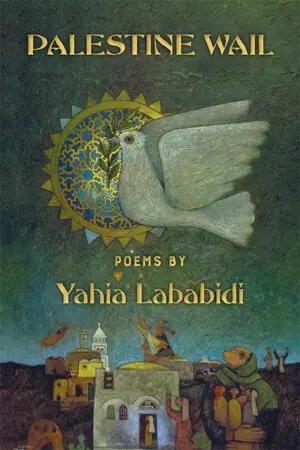
Daraja Press publication September 2024 / Collection of poems by Yahia Lababidi. I am sharing this in solidarity with Palestine and to amplify Palestinian voices. This text has been reposted from Daraja Publications to share the news of Lababidi’s publication and work.
To visit the original site, click here.
Renowned aphorist Yahia Lababidi’s Palestine Wail writes alongside a catastrophe beyond words, trying to shelter in words what remains of our humanity. To be a Minister of Loneliness and Lightkeeper, tending to the light. — Philip Metres, author of Fugitive/Refuge
Palestine is personal for writer, Yahia Lababidi. His Palestinian grandmother, Rabiha Dajani — educator, activist & social worker — was forced to flee her ancestral home in Jerusalem, at gunpoint, some eighty years ago.
As an Arab-American, Lababidi feels deeply betrayed by the USA’s blind support of Israel’s genocide of Palestinians.
In Palestine Wail, he reminds us that religion is not politics, Judaism is not Zionism, and to criticize the immoral, illegal actions of Israel is not antisemitism — especially since, as an Arab, Lababidi is a Semite, himself.
Using both poetry and prose, Lababidi reflects on how we are neither our corrupt governments, nor our compromised media. Rather, we are partners in humanity, members of one human family. Not in Our Name will the unholy massacres of innocent Palestinians be committed (two-thirds of whom are women and children) nor in the false name of ‘self-defense’.
In turn, Lababidi reminds us that starvation as a weapon of war is both cruel and criminal, as is collective punishment.
Palestine Wail invites us to bear witness to this historical humanitarian crisis, unfolding in real-time, while not allowing ourselves to be deceived, intimidated or silenced. We are made aware of the basic human truths that no lasting peace can be founded upon profound injustice and that the jailor is never Free…
Yahia Lababidi, an Arab-American writer of Palestinian background, has crafted a poignant collection which serves as a heartfelt tribute to the Palestinian people, their struggles, and their resilience in the face of an ongoing genocide and ethnic cleansing.
The collection, described as a love letter to Gaza, draws inspiration from the rich literary tradition of Palestinian resistance literature. Lababidi, known for his critically-acclaimed books of aphorisms, essays, and poetry, brings his unique voice to this personal, political and spiritual work.
Palestine Wail addresses us in a variety of voices: outrage, lamentation and pity, in attempting to honor the pain of the oppressed Palestinian people, while also celebrating their enduring spirit.
Lababidi’s Wail, ultimately, is a prayerful work seeking peace, healing and reconciliation—a testament to the transformative power of literature to keep hope alive in the face of seemingly insurmountable odds.
These are necessary and truthful poems. Yahia Lababidi powerfully illuminates this heartbreaking time and terrible season in the history of our world. This book, like a lantern in darkness, brings to light the truth of lives we must learn to honor and remember. — James Crews, author of Unlocking the Heart: Writing for Mindfulness, Creativity, and Self-Compassion
Yahia Lababidi’s stunning and resonant collection, Palestine Wail, addresses the outrage felt by many of the oppressed Palestinian supporters and more. He also speaks of the lamentations of his people and the show of pity, compassion, and empathy from many members of the human family from all around the world. — The Indefatigable Longing For Peace And Rapprochement In Yahia Lababidi’s Palestine Wail By Michael Parker.
To find out more visit Palestine Wail visit the publisher’s site, Daraja Press.
October 28, 2024
October 27, 2024
Writing for the Children of Palestine: A Conversation with Mahmoud Shukair
 Photo by Yousef Khanfar
Photo by Yousef KhanfarThe beginning of this interview has been shared from World Literature Today’s November Issue. The interview is conducted over four parts, shedding light on the life and work of prolific children’s author, Mahmoud Shukair. The piece is also illustrated with photographs from the world-renowned photographer, Yousef Khanfar. Visit World Literature Today here, to read & view the piece in full.
Writing for the Children of Palestine: A Conversation with Mahmoud Shukair in World Literature Today.Mahmoud Shukair is not only enlightening the Arab world on Palestine, he is enlightening the world on themselves. —Yousef Khanfar, founder of the Palestine Prize Foundation
Mahmoud Shukair is a literary giant in Arab and Palestinian literature, with a vast and impressive catalog of literary works spanning over eighty titles, published around the world in twelve different languages. He is the recipient of several awards, including the Mahmoud Darwish Prize for Freedom and Creativity (2011) and the Jerusalem Prize for Culture and Creativity (2015). His 2016 novel Praise for the Women of the Family was nominated for the Arabic Booker Prize.
In my first introduction to him, he is seated on a sofa, with a white curtain hanging over a barred window as the soft twilight of his beloved Jerusalem streams through. He looks sophisticated in a blue shirt and beige jacket. A gold-framed picture of his family hangs on the wall behind him.
He lives in Jabal al-Mukaber, a suburb of Jerusalem, twenty meters away from the house he was born in. I introduce him in this way, because to understand Shukair is to understand his profound connection to Jerusalem, an integral part of his life’s work. Yet his life’s work and the act of writing have had profound, life-changing impacts on his safety and freedom. I seek to discover what makes a literary giant continue to write against all odds and under a brutal occupation.
I believe there are many writers in one man, and after studying Shukair’s body of work, I discerned four stages in his literary life. It was a great honor to discover more about his life, work, and the celebration of his achievements, most recently winning the Palestine Prize for Literature.
* * *Part 1: Writing for Palestinian Children Living under OccupationShereen Malherbe: Mahmoud Shukair, congratulations on becoming a Palestine Prize Foundation laureate. The Palestine Prize Foundation’s role is “to preserve, protect, and promote the Palestinian dreams and achievements.”
Mahmoud Shukair: Thank you, fellow author Shereen Malherbe, and thanks to the Palestine Prize Foundation for honoring me with this award.
Malherbe: As a prolific writer for children, can you tell us how you feel about preserving Palestinians’ dreams for children who grow up in a lifetime under occupation?
Shukair: Maintaining the dream of Palestinian children born under occupation is never an easy task, particularly when those children are being starved, killed, and subjected to genocide, as is currently the situation in the Gaza Strip. However, I have been keen, in my work writing fiction for children and young adults, to revive the dream of a free homeland in which the children of Palestine enjoy freedom and security. I have always taken care to instill in kids a love of the land, the natural world, and their homeland through concrete, palpable details that they can grasp.
Malherbe: Can you give us some insight into the struggles Palestinian children face? What did you witness?
Shukair: Children in Palestine are experiencing horrific acts of cruelty never seen before on any other child in the world. In Gaza, the starvation of Palestinian children is a deliberate practice that has resulted in a high death toll from malnutrition and insufficient food, particularly milk.
There are children dying due to lack of medication, others killed in bombardments that target civilian homes, and some who remain alive as amputees and orphans after the bombing targets their families.
Due to the genocide that is presently occurring in Gaza, Palestinian children are experiencing trauma, shock, and numerous psychological crises. These kids require medical attention, psychological support, and creative writing that addresses their weary and traumatized souls so they can return to their regular selves.
Malherbe: How does your writing help do this?
Shukair: I try to include an element of enjoyment in all the stories and novels I write for young readers. Even when I write about the brutal practices of the occupation soldiers, I take care to convey it with some calm and without excessive expressions of sadness and grief in order to avoid putting the child in a state of sadness and frustration. I do not encourage placing the child in a state of misery resulting from difficult social and national circumstances, so that he remains optimistic and hopeful for a safe and secure life.
I try to include an element of enjoyment in all the stories and novels I write for young readers
Malherbe: You were also affected by the occupation throughout your life. Can you tell us more about this?
Shukair: When I write for children, I draw inspiration for my stories and novels from what I see and know of the real suffering of children at the hands of the Israeli occupiers. I also draw inspiration from what I was exposed to by the occupation during my childhood. When I was seven years old, my mother woke me up as the sound of shells and bullets rang in my ears. We had to flee our home that night to find safety away from the gunfire after an armed Zionist gang attacked Jabal al-Mukaber, where my family and I were living. We stayed for four months in the eastern part of our village, then returned home. When I returned home, I felt happy, but the fear of losing my home and stability, which had settled deep within me after that bitter experience, has not left me until now.
To read the full interview, visit World Literature Today.
October 25, 2024
Palestine Museum US upcoming events.
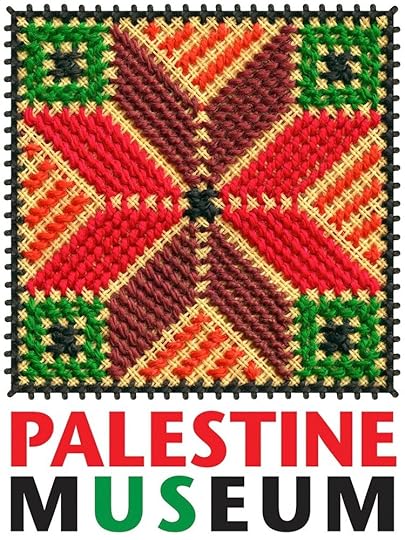
Reposted via Palestine Museum US
Dear Friends of Palestine Museum USGreetings from Woodbridge, Connecticut, USA
This Saturday, October 26, 2024, 12:00 Noon US EDT; 19:00 Palestine; 18:00 Europe; 17:00 UK
Free virtual screening of the documentary film, “Ahmad Alive,” presented by SEEN.tv. Running time: 37 minutes, English with English subtitles, released 2024.
Please click here for more information or to register to view this film.
SYNOPSIS
“Ahmad Alive” is the harrowing story of Gazan travel vlogger, Ahmad Ghunaim. Ahmad never aspired to be a war correspondent, but after October 7th, with foreign journalists banned from Gaza, he needed to show the world what was happening. With just his phone, Ahmad captured Israel’s vicious war on Gaza. We follow him as his house is bombed and he becomes a refugee overnight. Fearing for his life, Ahmad is forced to live on the streets, sleeping in hospitals, cars, and tents
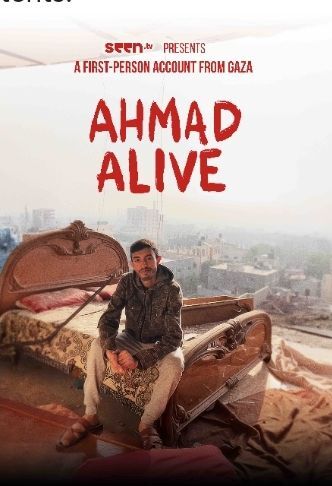
This Sunday, October 27, 2024, 12:00 Noon US EDT; 19:00 Palestine; 18:00 Europe; 17:00 UK
Madefeh Program: Our guest: Jenan A. Matari, Palestinian Storyteller, Influencer.
Please click here to register to attend this event.
Join us for a conversation with Jenan A. Matari as we explore the crucial role social media influencers play in shaping narratives around Gaza and Palestine. We will discuss how these new voices contribute to the broader discourse, offering insights and perspectives that are often deliberately overlooked by traditional media. Through their storytelling, they provide a counter-narrative, promoting awareness and understanding in a landscape marked by misinformation and erasure of anything Palestine.
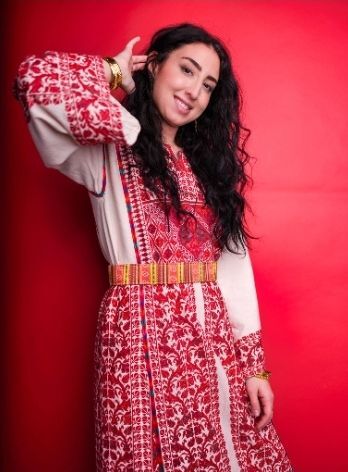
In response to viewers’ requests, we are offering several art reproduction prints, examples below.
Please click here to view and order available prints.
Please click here to order books, and here to make a donation to help us defray film screening costs.
Best regards,
Faisal Saleh
Palestine Museum US
+1 203 530-2248
Our mailing address is:
Palestine Museum US
1764 Litchfield Tpke Ste 200
Woodbridge,CT06525-2353
Add us to your address book
October 22, 2024
October 16, 2024
Archives & Heritage for Palestine, a series hosted by Dr. Jamila Ghaddar and Tam Rayan
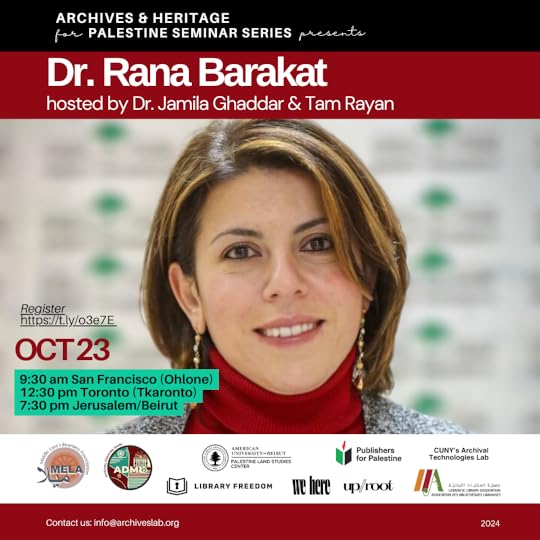
Virtual Seminar – Register now
Reposted from Archives & Heritage for Palestine, a series hosted by Dr. Jamila Ghaddar and Tam Rayan
Dr. Rana Barakat
Ongoing Return: How To Re/Consider the Past in the Present
Wednesday, October 23, 2024
9:30 am GMT-7 San Francisco (Ohlone)
12:30 pm EST Toronto (Tkaronto)
7:30 pm GMT+3 Jerusalem/Beirut
Livestream on Facebook, Youtube and Instagram | https://www.facebook.com/MELALibs | https://x.com/MELALibs | @pubforpalestine | @PLSC_AUB
We are honored to host renowned scholar, Dr. Rana Barakat, for the third installment of Archives & Heritage for Palestine, a series hosted by Dr. Jamila Ghaddar and Tam Rayan, in defense of Palestinian life, land, liberation, and return. This session will draw upon Dr. Barakat’s extensive work in writing a historiography of Palestine, which situates the Palestinian narrative outside of colonial frameworks in a celebration of indigenous resistance and nationalism. This presentation will continue our Palestinian conversations about return and thinking about return as ongoing through thinking otherwise about the past as well as the future. How is ongoing return a way of being with the past in the present as we imagine our futures? How does ongoing return affect how we engage our material pasts? Be it through how we think about archiving or archives, collecting and museum collections, history and historiography, much can be learned from Palestine and Palestinian practices. If we center return as an ongoing practice, we can ask, how do we return to/with Palestine and how is ongoing return a methodology for thinking about the past in the present while we imagine our futures? This conversation will discuss the preservation of Palestinian history – from popular memory, storytelling, and oral history – as part of the movement for liberation.
The Archives & Heritage for Palestine series is a joint initiative of the Middle East Librarians Association (Archives & Heritage for Palestine Advocacy Sub-Group), the American University of Beirut’s Palestine Land Studies Center, Publishers for Palestine, and the Archives & Digital Media Lab; and sponsored by the Lebanese Library Association, CUNY’s Archival Technologies Lab, Library Freedom, We Here and up//root. The series responds to the urgent need to act in solidarity with Palestinian colleagues and institutions in Palestine and the Shetat (Diaspora) to safeguard the heritage, history, and memory of the Palestinian people under settler colonialism and genocide. Through education and advocacy, we work to surface, connect, amplify, and promote ongoing efforts by Palestinians and supporters in the archives and heritage sectors.
About the Speakers & Hosts:
Rana Barakat is associate professor of history and contemporary Arab studies and Director of the Museum at Birzeit University in Palestine. Her research interests include the history and historiography of colonialism, nationalism, and cultures of resistance. She earned her PhD in history from the University of Chicago and has published in notable venues including the Journal of Palestine Studies, Jerusalem Quarterly, Settler Colonial Studies, and Native American and Indigenous Studies. Her forthcoming book, Lifta and Resisting the Museumification of Palestine: Indigenous History of the Nakba (UNC Press), advances an indigenous understanding of time, space, and memory in Palestine by focusing on the details of the people and place of Lifta village over time. She is currently working on her next book, “The Buraq Revolt: Constructing a History of Resistance in Palestine,” which argues that this 1929 revolt was the first sign in the Mandate period of sustained mass resistance to the settler-colonial project, including direct and rhetorical actions against both political Zionism and British imperialism, planting seeds of mass political mobilization.
Dr. Jamila Ghaddar is a Lebanese writer, archivist, historian and educator. She is assistant professor at Dalhousie University’s Department of Information Science in Kjipuktuk, Mi’kma’ki (homeland of the Mi’kmaq) also known as Halifax, Canada. She is founding director of the Archives & Digital Media Lab and a Research Affiliate at AUB’s Palestine Land Studies Center. She recently completed a SSHRC-funded Postdoctoral Fellowship with Raymond Frogner (National Centre for Truth & Reconciliation) and Dr. Greg Bak (History Dept.) at the University of Manitoba. Ghaddar has worked in archives and around the world, including at the American University of Beirut’s Jafet Library where she worked on the personal papers of Dr. Constantine Zurayk who coined the term ‘Nakba’; and at the Nelson Mandela Foundation’s Centre of Memory in Johannesburg where she helped preserve the papers of anti-apartheid hero, Nelson Mandela.
Tam Rayan Tam Rayan is a PhD candidate in the School of Information at the University of Michigan, specializing in Archives and Digital Curation. They received their MI in Information Studies and MA in Ethnomusicology from the University of Toronto. Their research is focused on deconstructing how colonialism operates through archival infrastructures as well as how to build transformative archival representations of those in diaspora. Specifically, they are interested in how to better serve and represent the recordkeeping needs of Palestinians with unique intergenerational traumas, impacted by forced migration, displacement, and exile. They are an Anti-Racist Digital Research Fellow at the University of Michigan, a former steering committee member of the SAA Archivists and Archives of Color section, and a former ARL/SAA Mosaic Fellow. Their research has been published in Across the Disciplines and Archival Science. Register now
Contact us at:
October 13, 2024
Shereen Malherbe’s books now available in UAE

Deen Square is the UAE distributor for Shereen Malherbe’s children’s series and novels.


Malherbe’s latest novel, Yassini Girls has recently featured in the The Muslim 500 Book Corner. It will be available in the UAE soon.
Subscribe to make sure you don’t miss out on any updates including local book fairs and author events happening soon…
If you’d like any more information on ordering these books from anywhere in the world, email info@beaconbooks.net



